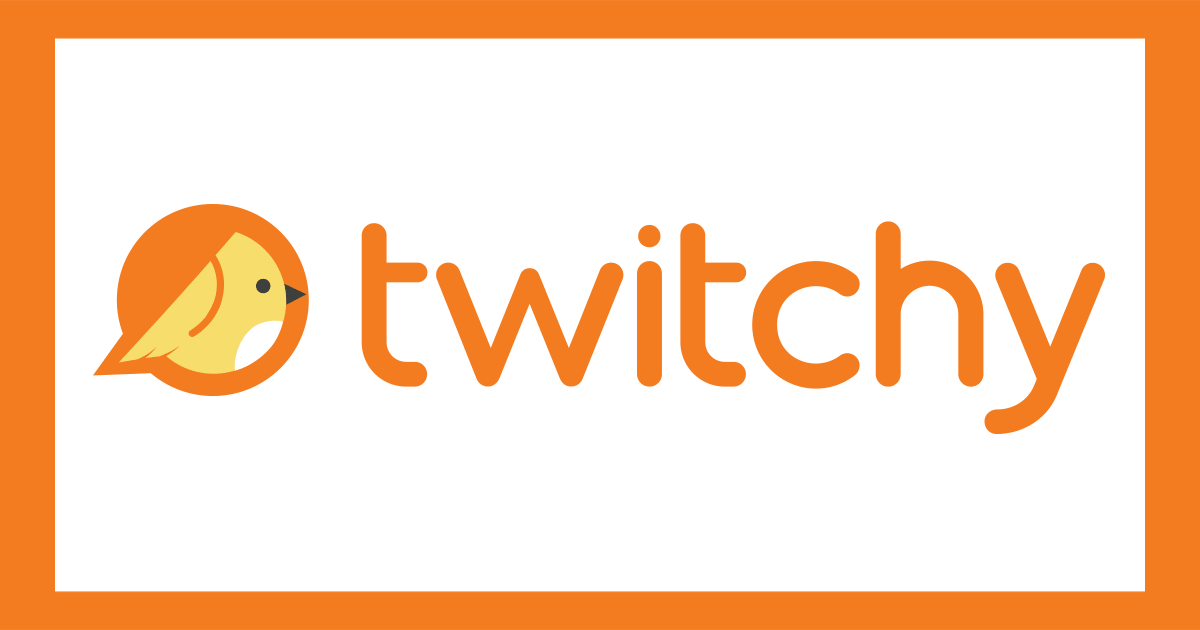The Washington Free Beacon’s Aaron Sibarium has done some truly excellent and vital work in exposing racism and bias at some of America’s foremost institutions of higher learning. Here’s a look back at some of his reporting:
- Free Beacon’s Aaron Sibarium details the hell Yale Law put part-Cherokee student and Federalist Society member through over BS ‘racism’ complaints
- Free Beacon’s Aaron Sibarium reveals how Yale Law School’s unjust crusade against part-Cherokee conservative student is going further off the rails
- MUST READ: Free Beacon’s Aaron Sibarium fully exposes Yale Law’s diversity director for pushing insanely racist, antisemitic diversity trainer on students
- Free Beacon’s Aaron Sibarium takes close, disturbing look at how Critical Race Theory is infecting Georgetown Law
- Yale Law School students angry that their ‘private’ posts about ‘unrelenting daily confrontation’ with conservatives classmates are being used
Today, Sibarium’s out with another infuriating but extremely important story concerning bias and universities, but this time, Google has a starring role. It’s a long one, but you’ll definitely want to read the whole thing:
SCOOP: Google is setting hard caps on how many white and Asian students universities can nominate for a prestigious fellowship, a policy that likely violates civil rights law and could threaten the federal funding of nearly every elite university in the US.https://t.co/QYvr5VSedj
— Aaron Sibarium (@aaronsibarium) August 23, 2022
The Google Ph.D. Fellowship, which gives promising computer scientists nearly $100,000, allows each participating university—a group that includes most elite schools—to nominate four Ph.D. students annually.
— Aaron Sibarium (@aaronsibarium) August 23, 2022
"If a university chooses to nominate more than two students," Google says, "the third and fourth nominees must self-identify as a woman, Black / African descent, Hispanic / Latino / Latinx, Indigenous, and/or a person with a disability."
— Aaron Sibarium (@aaronsibarium) August 23, 2022
That criterion, which an archived webpage shows has been in place since at least April 2020, is almost certainly illegal, civil rights lawyers told the Washington Free Beacon—both for Google and the universities. https://t.co/Mq2P0G5Liy
— Aaron Sibarium (@aaronsibarium) August 23, 2022
Recommended
Universities in the United States and Canada may nominate up to four eligible students from Computer Science or related fields. If more than two are nominated, then in order to increase opportunities for students who are underrepresented in the field of computing, additional nominees must self-identify as a woman, Black/African American, American Indian/Alaskan Native, Hispanic/Latinx, Native Hawaiian/Pacific Islander and/or person with a disability. In other words, if a university chooses to nominate more than 2 students, then the 3rd and 4th student nomination should self-identify with the underrepresented group mentioned above.
Does that strike you as … not OK? Because it should. It’s not OK, and, as Sibarium points out, it actually appears to be highly illegal.
"It is illegal for Google to enter into contracts based on race under the Civil Rights Act of 1866," said Adam Mortara, the lead trial lawyer for the plaintiffs in Students for Fair Admissions v. Harvard, who are pressing the Supreme Court to outlaw affirmative action.
— Aaron Sibarium (@aaronsibarium) August 23, 2022
"And it is illegal for universities receiving federal funds to nominate students based on race under Title VI of the 1964 Civil Rights Act."
That means nearly every top school in the United States could be at risk of losing its federal funding.
— Aaron Sibarium (@aaronsibarium) August 23, 2022
Since Google’s discriminatory rule went into effect, a long list of universities has nominated students for the fellowship: Harvard, Yale, Stanford, Princeton, MIT, Columbia, Cornell, Duke, Hopkins, UPenn, UMichigan, UNC Chapel Hill, the UC Berkeley, NYU, and many more.
— Aaron Sibarium (@aaronsibarium) August 23, 2022
Those schools also have their own policies banning discrimination by race, gender, or disability—the three categories on which Google requires them to base fellowship nominations.
— Aaron Sibarium (@aaronsibarium) August 23, 2022
Insane. This is straight-up insane.
And also straight-up terrible.
The fellowship “is a blatantly unlawful and immoral quota plan that pits students against one another by skin color and ethnic heritage," said Edward Blum, the founder of SFFA. "Our nation’s civil rights laws were passed to specifically forbid this type of discrimination."
— Aaron Sibarium (@aaronsibarium) August 23, 2022
The fellowship shows how racial quotas, when sanctioned by a sufficiently powerful corporate actor, can metastasize and multiply across institutions. It also shows how private companies can circumvent Congress and federal law through a kind of bribery.
— Aaron Sibarium (@aaronsibarium) August 23, 2022
"Google is using its pocket-book to incentivize America’s elite universities to violate Title VI," said Dan Morenoff, the executive director of the American Civil Rights Project. "It’s using its financial support to directly counter Congress’s policy."
— Aaron Sibarium (@aaronsibarium) August 23, 2022
The bet, Morenoff added, is that "the feds won’t notice, won’t care, or won’t actually force the schools to choose between federal funding and Google’s."
That assumption reflects the race-conscious consensus that has captured both private and public bureaucracies.
— Aaron Sibarium (@aaronsibarium) August 23, 2022
It’s utterly depressing, but Morenoff’s far from unrealistic in expecting the government to allow this sort of racial discrimination to continue.
Uber Eats in 2020 waived delivery fees for black-owned restaurants, only to scrap the policy after a lawsuit. In 2021, NASDAQ mandated racial quotas for all companies listed on its exchange, a rule now being challenged in the Fifth Circuit.
— Aaron Sibarium (@aaronsibarium) August 23, 2022
And from New York to Utah to Minnesota, state public health departments have allocated scarce COVID-19 drugs based on race—even after lawyers informed them that their allocation schemes were illegal. https://t.co/xXZ1Xve3nt
— Aaron Sibarium (@aaronsibarium) August 23, 2022
Those plans, like Google’s fellowship criteria, were all posted on public websites. No effort was made to hide them, suggesting that race-discriminaton—against certain groups, at least—is now the norm for many professionals.
— Aaron Sibarium (@aaronsibarium) August 23, 2022
It shouldn’t be the norm, but it is. Here we are.
It is also the norm at many universities, some of which explicitly advertise the Google fellowship’s diversity criteria to students.
— Aaron Sibarium (@aaronsibarium) August 23, 2022
In an August 16 email encouraging all computer science Ph.D.'s to apply for the fellowship, New York University said it would not nominate more than two white or Asian males, "in order to increase opportunities for students who are underrepresented in the field of computing."
— Aaron Sibarium (@aaronsibarium) August 23, 2022
Last time we checked, excluding applicants based on racial criteria was wrong and also against the law.
Duke University includes the same language on its "Research Funding" website.
Contacted about these concerns, New York University appeared to backtrack.
— Aaron Sibarium (@aaronsibarium) August 23, 2022
"The language used in the internal announcement was not NYU's but rather was drawn from the FAQ that Google posted about the Fellowship program," a spokesman, John Beckman, told the Free Beacon, adding that "we are reviewing the language in the announcement."
— Aaron Sibarium (@aaronsibarium) August 23, 2022
Unless by “reviewing,” they mean “completely striking,” we’re not willing to give them the benefit of the doubt.
These universities may be violating as many as three different civil rights laws, not just Title VI. If schools are nominating people for a fellowship, Morenoff said, courts might treat them as employment agencies under Title VII, which prohibits discrimination in employment.
— Aaron Sibarium (@aaronsibarium) August 23, 2022
State civil rights laws, which are often more exacting than federal statutes, pose a separate challenge. NY’s Human Rights Law, Morenoff said, is the most broadly written antidiscrimination law in the US, and almost certainly bars schools from nominating students based on race.
— Aaron Sibarium (@aaronsibarium) August 23, 2022
That said, it would take a lot for universities to lose federal funding—a punishment of last resort under Title VI—over the fellowship. It could, however, open universities to civil rights investigations, Morenoff said, as well as to lawsuits from private parties.
— Aaron Sibarium (@aaronsibarium) August 23, 2022
Any universities that participate in or endorse race-based discrimination should absolutely be subject to civil rights investigations and lawsuits.
Universities usually blink in the face of such pressure. Harvard, for example, rescinded a ban on nominating members of single-gender clubs for the Rhodes scholarship after a 2019 lawsuit alleged that the policy violated Title IX. https://t.co/O0DEGyFhOI
— Aaron Sibarium (@aaronsibarium) August 23, 2022
Google’s legal problems are just as extensive as the universities’. Mortara, Morenoff, and another lawyer said that the fellowship’s racial caps likely violate the 1886 Civil Right Act, the law that bans contracting on the basis of race.
— Aaron Sibarium (@aaronsibarium) August 23, 2022
Because it imposes requirements on students as well as Google—for example, that students remain enrolled in a Ph.D. program for the duration of the fellowship—courts would probably consider the fellowship a contract.
— Aaron Sibarium (@aaronsibarium) August 23, 2022
"Might Google have some defense? It’s possible," Morenoff said. "But on its face, this is a violation of our oldest civil rights enactment."
In addition, Google may be violating Title VII, whose ban on employment discrimination extends to employment training programs.
— Aaron Sibarium (@aaronsibarium) August 23, 2022
The fellowship could be considered such a program, Morenoff said: Though fellows are not employed by Google, they are paired with a "Google mentor" and encouraged to apply for internships with Google. CA state law also prohibits discrimination in employment training programs.
— Aaron Sibarium (@aaronsibarium) August 23, 2022
In response to a detailed inquiry about these legal concerns, Google defended the nominating criteria and denied that it was breaking the law.
— Aaron Sibarium (@aaronsibarium) August 23, 2022
"Like many companies, we actively encourage a broad range of individuals to apply to our PhD Fellowship program in order to attract the widest and most representative pool of applicants possible—this follows all relevant laws and is extremely common to do," Google said.
— Aaron Sibarium (@aaronsibarium) August 23, 2022
Lots of companies discriminate based on race! This is all very normal and fine!
"Selection for the fellowships"—that is, selection from the pool of nominees, not the nomination process itself—"is not based on demographics in any way."
This is not the first time Google has pushed the envelope with its diversity initiatives.
— Aaron Sibarium (@aaronsibarium) August 23, 2022
Safe bet that it won’t be the last time, either.
The company’s former head of diversity, Kamau Bobb, was reassigned in June of 2021 in the wake of a Free Beacon report that revealed his history of anti-Semitic comments, including that "Jews have an insatiable appetite for war." https://t.co/ryDwHUO5J8
— Aaron Sibarium (@aaronsibarium) August 23, 2022
Around the same time, Google told employees in a series of diversity trainings that "America is a system of white supremacy" in which everyone is "raised to be racist" and that "colorblindness" is "covert white supremacy." https://t.co/4L4Qb0ejLZ
— Aaron Sibarium (@aaronsibarium) August 23, 2022
Google also fired a programmer, James Damore, after he questioned Google’s diversity policies in a memo that proposed ways "to increase women's representation in tech without resorting to discrimination," a practice Damore called "unfair, divisive, and bad for businesses."
— Aaron Sibarium (@aaronsibarium) August 23, 2022
Google's diversity quotas extend beyond the United States. The Ph.D. Fellowship recruits students from across the world, with different nominating criteria for each region.
— Aaron Sibarium (@aaronsibarium) August 23, 2022
Universities in East Asia and Europe, which are only allowed three nominations each, do not have to worry about race or disability. But gender is another story.
— Aaron Sibarium (@aaronsibarium) August 23, 2022
"If a university chooses to nominate more than two students," the rules for Asia and Europe read, "the third nominee must self-identify as a woman."
— Aaron Sibarium (@aaronsibarium) August 23, 2022
So, basically, Google has institution biases based on race and sex (or, rather, gender). Good to know.
Prejudice is the point. https://t.co/kTAPM84eKi
— Pradheep J. Shanker (@Neoavatara) August 23, 2022
***
























Join the conversation as a VIP Member